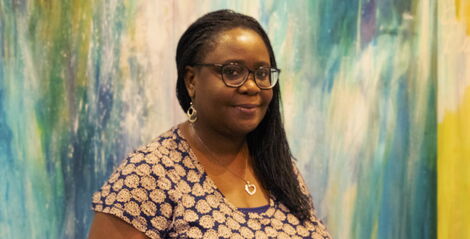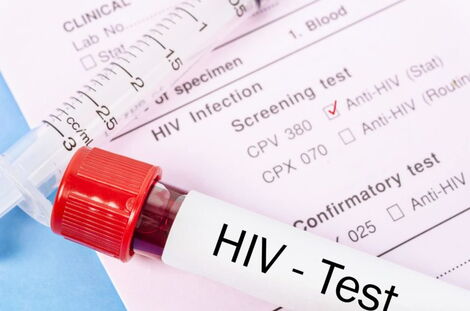-
Catherine Kibirige poses for the camera while in a medical laboratory. HIV PLUS MAG
-
Kenyan-born scientist Catherine Kibirige joined the class of global geniuses after she made a breakthrough with her new invention to revolutionise the testing of HIV virus.
Her interest to pursue the field was shaped by her childhood experience following the late 20th-century break out of HIV infections in her native Uganda and parts of the Republic of Kenya.
After her father moved them to the UK, Kibirige developed an interest in pursuing science-based subjects and returned to Uganda as a volunteer where her interest in developing a better HIV testing kit was pricked.
She noticed that the widely used kit, majorly in African countries, was unable to detect some strains of the disease that devastated the East African nations in the 1990s and in the aughts.
 Catherine Kibirige who invented an assay to test HIV. IMPERIAL COLLEGE LONDON
Catherine Kibirige who invented an assay to test HIV. IMPERIAL COLLEGE LONDONTwo years after her volunteer period, she earned a scholarship to the United States where she concentrated on developing a new testing kit, known as an assay in medical circles.
The then assay, which is a lab test used to find and measure the amount of a specific substance, could not easily detect emergent variants of the virus.
“I was working in a technology assessment laboratory and my supervisor had been involved in developing viral load tests and other kinds of tests for HIV…and was involved in helping the different companies test out new versions of the assays and making sure that they covered all the different strains.
"The military, having troops deployed all around the world, had a very diverse repository [of HIV strains], so they were able to provide all sorts of different strains for companies to kind of test and upgrade their assays," Kibirige stated in an interview with HIV Plus Magazine.
She hit the lab and emerged with a better assay capable of detecting a wide array of HIV strains but she is concerned with making the kit financially affordable - especially in African nations.
Throughout her childhood, Kibirige lived through the devastating effects of the epidemic, coupled with a civil war in her native Uganda that forced her parents to flee to Kenya - where she was later born.
She noted that her family, which was based in Kenya, lost a number of relatives.
“The first cases of HIV were actually recorded or reported in Uganda, in a town called Rakhi — tents near the border with Tanzania and it really devastated our country because we’d just come through a series of civil wars. And actually, I think they trace the way the virus spread to some troops that had come in to help depose one of the dictators, so the route it followed into the country was associated with that.
“It was very, very devastating…. We ended up losing a lot of people, even within the Uganda community in Kenya, so it really did affect me…(we) lost close cousins, relatives and science being my strongest subject…it just piqued my interest," she remarked.
 An HIV specimen. FILE BY Derrick Okubasu, Kenyans.co.ke
An HIV specimen. FILE BY Derrick Okubasu, Kenyans.co.ke